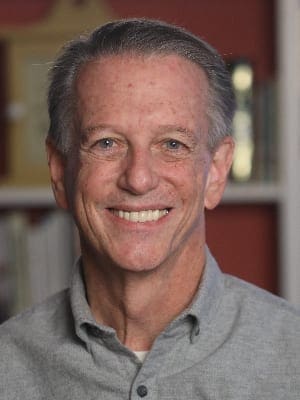We left the Hotel Oujda at 6:30 a.m. to catch the train to Fez. It was a relief to check out of the 1970s-looking hotel that could qualify as shabby-chic if the owners had been going for that look intentionally.
There are many fine hotels in Morocco. This wasn’t one of them.
What it lacked in decor it double-lacked in amenities. No air-conditioning or hot water, one working light in my room, one working receptacle, dirty and stained carpet and countertops, old and dingy (and probably dirty) linens and towels, darkened hallways.
The lobby restaurant was shut down, so guests played dodge-car to cross the busy street for breakfast.
I was feeling rather heroic, having endured this fate in order to represent our church in this country where East meets West and North meets South, until my mind returned to the refugees we met the day before in the forest from all over sub-Saharan Africa – hungry and scared young men the age of my children, hiding from police, who would have considered our hotel the lap of luxury compared to their subsistent lives.
We climbed a mile into the forest to visit several encampments of the estimated 400 refugees on this single hillside in Oujda from ages 16 to 30 who live in tents (really plastic tarps) within eyesight of the university named in honor of King Mohammed I, where other young people move about freely to pursue their education and plan their future.
During the day they slip into the city to beg or work if they can (it is illegal to hire refugees).
After dark they head back to the forest for a few hours of rest until 2 a.m., when they are on high alert for several hours to avoid police raids intended to catch them while they’re sleeping.
Some are refugees from political repression. Others flee war or famine. Still others run on behalf of their families from the hopelessness of life in their country of birth.
“I would rather die trying to find a better life than to starve in my home country,” said one statuesque young man in the forest.
Police regularly burn out their camps and destroy their few possessions – water jugs, blankets, cooking utensils – to remind them that they are not welcome in Morocco, knowing full well that they will return as soon as the police vehicles pull away.
These young men without a country want what every person wants. Reuben (not his real name) from Ghana declared, “I am a man. Why should I not have a job, a small business, to earn a life, to have a wife, to walk my children to school?”
I had no answer. A promised hope “in the sweet by and by” would miss the point entirely.
I had nothing to offer in the moment but my empathy, which was not what he sought.
They sneak into Morocco in hopes of eventually making it across the Strait of Gibraltar and into Europe, their vision of the Promised Land.
But any tourist to Europe can identify the ubiquitous young African men on the streets of its major cities, hawking fake designer purses and faux high-dollar watches – the same ones I saw being hawked in Marrakesh – barely eking out a life while avoiding the authorities who don’t want them on their continent.
Europe is not their answer. It is a pipe dream.
But most can’t go home empty-handed, even if they wanted to. And they’re not welcome in Morocco.
They’re stuck.
Where do they go? What do they do? As someone observed wryly, “You can’t be nowhere. You have to be somewhere.”
One worker observes, “No one comes out of the womb with a passport. These young men may be doing something illegal according to the law, but they themselves are not illegal. They are children of God. People have always migrated since the beginning of time. It is only in the last centuries that people have not been allowed by laws to move to where they can keep their families alive.”
This raises macro-level questions about our world, how we organize, how people in power retain power.
It raises questions about how the world’s super-power wields its authority and the implications of maintaining “our way of life.”
It reveals the unanticipated residual effects of colonialism and leads to questions about why these resource-rich nations must send their children away in hopes of finding a minimal life.
Is there a connection between how I live in America and these young men in the forest of Oujda? I’m afraid I know the answer. As nature reminds us, “Nothing is isolated. Each event connects with others.”
Is there something we can do? Perhaps. Surely we can at least render whatever political clout we have to appeal to the U.N. to investigate the “shoot to kill” policy in effect in a stretch of land between Morocco and Algeria.
“If they go there, they will find many bones,” report the refugees.
Or maybe we could join with those who untangle the threads that link people everywhere, who ask questions about justice and everyone’s rights as human beings.
That’s an enormous undertaking, one the church too quickly shies away from, but perhaps one that would legitimate an expensive trip across the world in the name of God.
When I get discouraged or complacent, I’ll return to the micro-level. I’ll call to mind Reuben. I may never see him again, but I’ll never forget him.
Joe Phelps is pastor of Highland Baptist Church in Louisville, Ky. This column appeared previously in The Louisville Courier-Journal.
A minister in Louisville, Kentucky, for 21 years as pastor of Highland Baptist Church, Phelps is now Justice Coordinator for Earth and Spirit Center. He leads, along with Kevin Cosby, EmpowerWest, a black-white clergy coalition calling for recognition, repentance, and repair of injustices to black Louisvillians.

